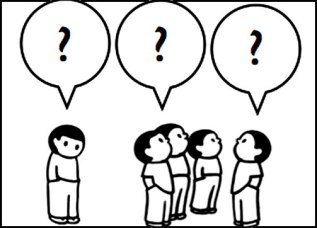What is it like to face a language barrier? How does it feel to be completely misunderstood and not understand what is being said to you?
The other day, I was waiting in the Vodafone store to recharge my monthly prepaid cell phone. Their website was down (surprise surprise!) and I had no other option but to go. As usual, there was a long time, so I took a ticket and sat down.
I was mentally planning what I had to do for the rest of the day when I heard, “¿hay alguien aquí que hable inglés?” (Is there anyone here who speaks English?)
Being the good citizen of the world that I am, I responded, “Sí, yo hablo inglés” and walked over to the worker who had asked.
I spent the next hour helping out a frustrated Korean woman who had been traveling alone throughout Spain. She bought an international SIM card for her cell phone so she could call home during her travels. Apparently, she had just recharged her phone the day before and the rates had gone up. Also, a button she used to press to call South Korea had disappeared. When she recharged the phone, no one had asked her what kind of plan she wanted. They just recharged it as they saw fit.
I explained all of this to the Vodafone employee in Spanish and he told me that it did not matter and that he could not see what rate she was paying. I would have to call customer service. After explaining this to the Korean woman, she was understandably upset. After all, she had been in the store for about 2 hours trying to fix her cell phone.
The employee told us to come back at 4:30 to see another guy who might be able to help. Then, he left. Frustrated with his lack of help, I asked another employee, whose advice was to call the free customer service number. She claimed that they did not have any information about international calling plans.
We left the store and the Korean woman insisted on buying me a coffee to express her gratitude. She told me that she travels a lot, on her own, and has been to many European and Asian countries. Out of all of the countries she has visited, she said she had the most trouble getting around in Spain. This experience was not her first roadblock either. A few weeks before, she was trying to book a bus ticket to Cuenca and the ticket agent simply said, “no English,” and shooed her away, even after she wrote down the name of the city.
Although Spain does not exactly have a good reputation for its customer service, something that you just become accustomed to after a while, I still found it shocking that the Korean woman had had so much trouble. I was especially surprised that she couldn’t find someone who could communicate with her in English. To me, it seemed like I regularly encountered people who spoke English or people who wanted to practice their English.
And then it hit me. I am a native speaker of English, with a fairly clear and easy-to-understand accent. This woman was a non-native English speaker who was fairly difficult for me, a native speaker, to understand. It is often very difficult for foreign language learners to understand other learners from different L1 (native language) backgrounds speaking the target language (in this case, English). Even if the Spanish people in Vodafone had known some English, it still would have been very difficult, if not impossible, for them to understand each other. I could see why this woman was so frustrated. It really was not because of the problems she was having with her cell phone, but rather because she felt completely misunderstood.
I thought about this for a while and realized I had never been in a similar situation. English, the lingua franca, is my native language. I usually have very little trouble communicating with people when I travel, and when I do, I just need to slow down and enunciate more and listen harder. In Spanish-speaking countries and regions, I can also communicate with ease, despite my guiri accent. However, I’m sure if I were traveling in South Korea, I would have a similar situation to this woman.
This experience made me realize firsthand the importance of having an international language. Had English not been such a global language, the Korean woman, Spanish Vodafone employee and I would not have been able to communicate. Likewise, I also realized why it is so important for me to be teaching English here in Spain. If I can help at least a small portion of the Spanish population to be able to communicate effectively in English with natives and foreigners alike, then I will have broken down a few more language barriers.

There is an alternative to English. I am one of many people who for decades have argued quietly that institutional support for Esperanto as a lingua franca could bring many benefits to the world.
I have used Esperanto successfully with people from dozens of countries, including Spanish-speaking countries and South Korea.
What do you think?
I like the idea of having an alternative to English. Learning English is not for everyone and Esperanto may be a good option. However, I feel that I do not know enough about Esperanto to form a solid opinion. From what I do know, though, it seems like Esperanto may be a little easier to learn.